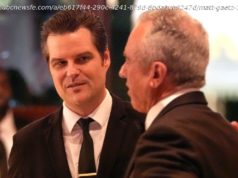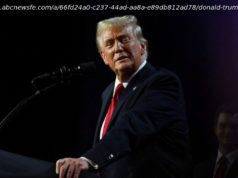His most notable accomplishment: helping to create a program to destroy surplus stocks of nuclear weapons around the world.
Richard G. Lugar, who represented Indiana in the Senate for 36 years and whose mastery of foreign affairs made him one of only a handful of senators in modern history to exercise substantial influence on the nation’s international relations, died on Sunday in Annandale, Va. He was 87.
His death was announced by the Lugar Center, which said the cause was complications from chronic inflammatory demyelinating polyneuropathy.
Mr. Lugar, who was chairman of the Senate Foreign Relations Committee for two stints, had a wide-ranging impact on foreign issues. But his most notable accomplishment was indisputably as the co-creator of a program to help destroy surplus stocks of nuclear weapons around the world.
The project was emblematic of Mr. Lugar’s approach to legislating: it represented an ability to take a long view about complex issues, ran counter to the inclinations of many of his fellow Republicans and was built on a foundation of bipartisan cooperation. It was presented jointly with Senator Sam Nunn, a Georgia Democrat who was chairman of the Armed Services Committee.
The Nunn-Lugar Cooperative Threat Reduction Program was based on the novel concept of providing American funds to destroy obsolete nuclear missiles and materials elsewhere in the world. At the time, the countries of the former Soviet Union said they could not afford the costly process of destruction and were not even providing sufficient resources to properly guard the weapons storage areas.
The idea was first proposed during the term of President George H. W. Bush, who opposed it along with many others. It took almost a decade, but Mr. Lugar succeeded in persuading Congress and especially skeptical fellow Republicans of the need for such an approach.
He was also Congress’s leading voice on treaties to ban or limit nuclear weapons, and his judgment on any such proposals was often a crucial factor in whether it could be enacted.
In 1986, President Ronald Reagan chose Mr. Lugar to lead an official American delegation to monitor a crucial election in the Philippines.
President Ferdinand Marcos, the longtime ruler of the Philippines, appeared to win the balloting, turning back the tide of demonstrations in favor of democracy that had forced him to hold the election. The Reagan administration was prepared to recognize that result and was on the verge of announcing its support.
But Mr. Lugar was insistent in his belief that widespread fraud had occurred and Corazon Aquino, the widow of an assassinated opposition politician, should have been declared the winner. He personally exhorted the president about the election irregularities he had witnessed and persuaded him to block any immediate recognition of a Marcos victory, helping to have Mrs. Aquino declared the eventual victor.
His independence frequently annoyed many Republicans, both in Washington and Indiana, especially later in 1986, when he helped lead a successful effort in Congress to override Mr. Reagan’s veto of legislation imposing trade and economic sanctions on the white-led government of South Africa over apartheid.
He has been regularly compared by historians and congressional scholars to former Senators Arthur Vandenberg of Michigan, J.






